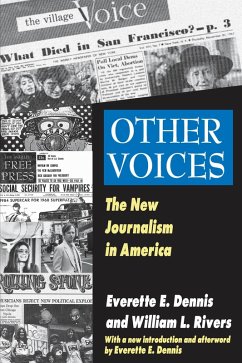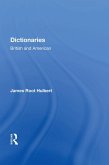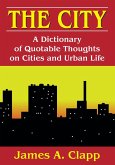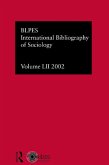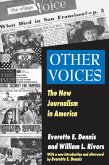The authors are comprehensive in their concerns, as reflected in the national scope presented. They cover developments in the major cities, on both coasts, in the Middle West and South-in every major region of the United States. Most of the research required travel and interviews; all of it required reading almost endlessly and watching the video productions of journalists who built the structure of alternative television. Dennis and Rivers offer a representative view of forms and media, as well as the people who fashioned the new orientation.
The authors claim that the wrangling over objective and interpretative reporting misses the main point, which is that neither is in close touch with reality. The best objective report may cover all surfaces of an event, the best interpretative report may explain all its meanings, but both are bloodless, a world away from the experience. Color, flavor, atmosphere, the ultimate human meaning-all these, the new journalists contend, are far beyond the reach of traditional models of journalism. This is one of the central reasons for the emergence of different forms and practices in our time. This volume will help younger scholars understand the sources of quasi-journalistic practices extant today, including blogging and electronic-only publications.
Dieser Download kann aus rechtlichen Gründen nur mit Rechnungsadresse in A, B, BG, CY, CZ, D, DK, EW, E, FIN, F, GR, HR, H, IRL, I, LT, L, LR, M, NL, PL, P, R, S, SLO, SK ausgeliefert werden.
Hinweis: Dieser Artikel kann nur an eine deutsche Lieferadresse ausgeliefert werden.

